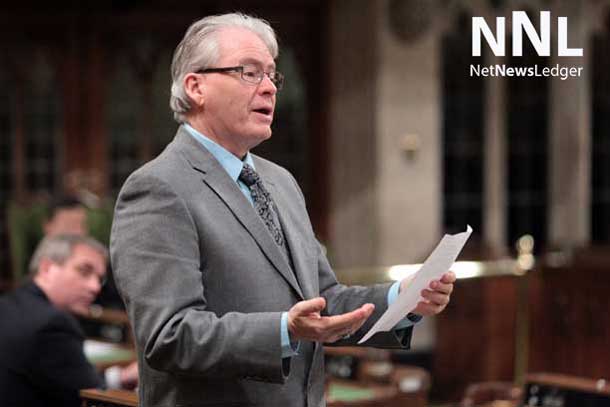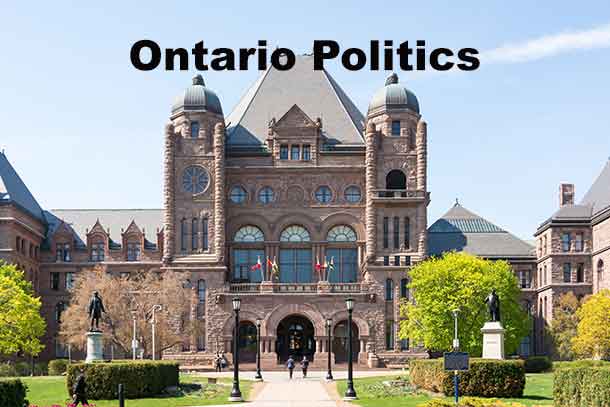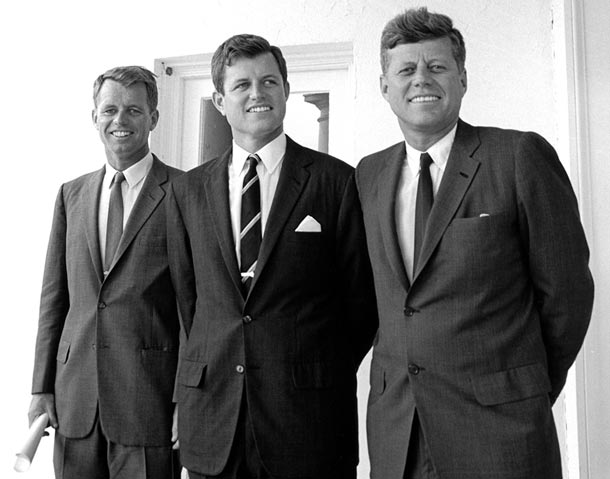
THUNDER BAY – POLITICS – Canadian democracy is in dire straits. Alarm bells have been going off for years – particularly since Stephen Harper’s Conservative Party came to power in 2006. And it’s not just the governing party. The NDP under Thomas Mulcair and the Liberals under Justin Trudeau are also very unwilling to tolerate different opinions within their parties. Stories abound of MPs being forced to vote against the will of their constituents, of ‘open’ nomination contests that are anything but, and many other anti-democratic attitudes and actions.
This Democracy Week, though, there might be a bright spot. Today, Conservative MP Michael Chong’s independent-minded Reform Act is up for second reading debate, and the bill will come to a vote next Wednesday, September 24. Chong’s bill proposes simple reforms to strengthen Parliament. It would make party leaders more accountable to their MPs by establishing a leadership review process. This process would empower MPs within their caucus.
The bill, as it stands now, will end the requirement for a candidate’s nomination papers to be signed by a party leader (an anti-democratic but little known change to the Elections Act by Pierre Trudeau in 1970). This reform will empower MPs to once again stand up for their constituents. It’s the primary reason why I’ve seconded this bill. I even introduced a similar motion back in 2012.
It is vital, however, that the bill curtail the excessive powers of party leaders to restore local control over party nominations. This week, changes were proposed that risk weakening the most important parts of the bill, and handing endorsement power right back to party leaders. While I’ll support the bill as an important step forward, it will be significantly watered down if the changes are made.
It’s important to remember that parties weren’t always the focus of the political system the way they are today. In fact, political parties aren’t even mentioned in the constitution! Until 1970, MPs were much more independent. Then, Pierre Trudeau changed the Elections Act to give party leaders the final say over nominations. Since then, leaders have gained more and more control over their caucus, while MPs have increasingly been muzzled.
The current situation stifles effective representation and local democracy. But thanks to the Reform Act, we now have the chance to make this vital change. With the passage of the Reform Act, MPs would be more responsive to local concerns, rather than the dictates of party leaders.
I look forward to voting in support on the Reform Act on Wednesday. Despite my enthusiasm for these vital changes, I know that this is only the beginning. There are several reforms that must be made if we are to make Parliament more productive and less partisan.
In addition to my 2012 motion M-404 to restore local democracy, I’ve introduced the following legislative measures to make Parliament work for Canadians:
• Motion M-304 for fairer elections, to make our voting system more proportional to reflect the actual choices of the people
• Motion M-391 to randomize seating in the House of Commons and foster cooperation
• Motion M-340 for cross-party cooperation to allow co-authorship of bills across party lines so that there is greater focus on substance rather than mindless partisan tribalism
• Bill C-512 to take away the Prime Minister’s power to declare any bill a matter of confidence and stop him from bullying parliament, imposing bloated omnibus budget bills, and ignoring his own fixed election date law
And there is more still to be done. It’s time we prevented parties from forcing their MPs to vote a certain way on issues for which they do not have an official party policy. The Green Party unanimously passed a resolution to ensure that their MPs would always be free to vote independently. We must also restrict the prime minister’s unilateral power to appoint, without oversight, Senators, judges, parliamentary officers and other positions.
We’ve got big challenges ahead. But this Democracy Week, I’m hopeful. With the Reform Act, we have a real starting point for ushering in the changes that will revitalize our political system. Canadians pride themselves on their democratic values, their openness to cooperation and new ideas, and their regional distinctions. It’s time their Parliament reflected this.






